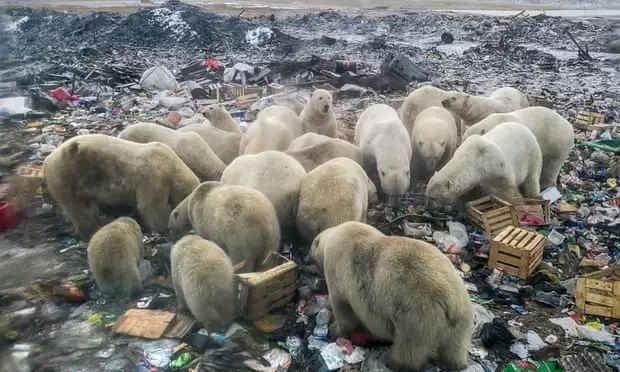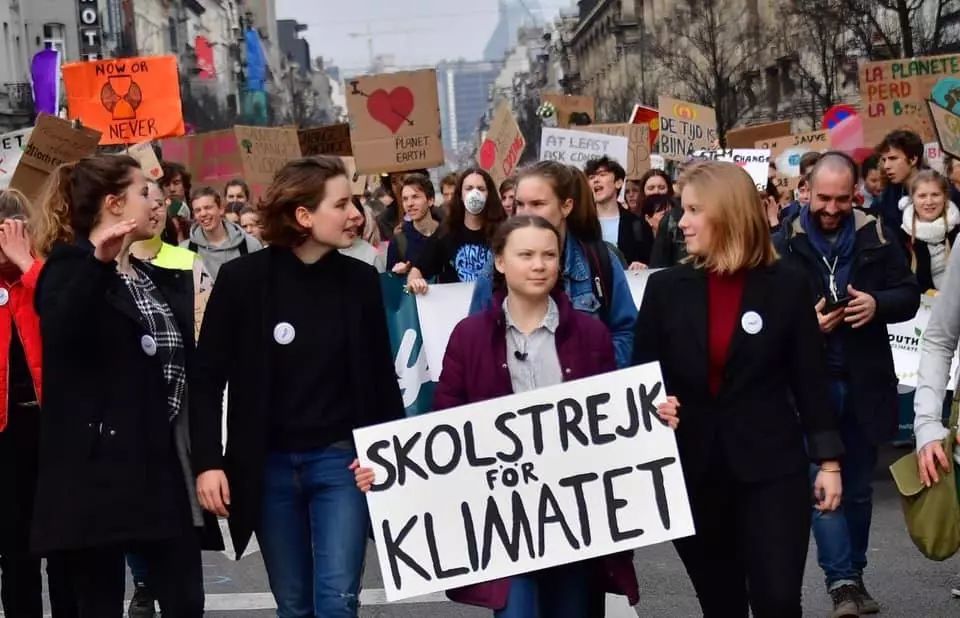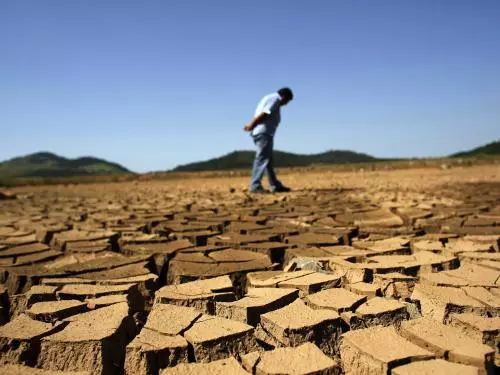为了用更准确的语言描述当下全球面临的环境危机,英国《卫报》近日更新了写作格式指南。

《卫报》为何改变环境描述用语:从现在起,《卫报》格式指南将推荐使用诸如“气候危机”和“全球变热”一类术语。
比起“气候变化”(climate change)、“全球变暖” (global warming) 这样的描述,《卫报》更建议采用“气候紧急情况、危机、崩溃”(climate emergency, crisis and breakdown) 及 “全球变热”(global heating)的表达,但之前的说法也不会禁用。
“We want to ensure that we are being scientifically precise, while also communicating clearly with readers on this very important issue,” said the editor-in-chief, Katharine Viner. “The phrase ‘climate change’, for example, sounds rather passive and gentle when what scientists are talking about is a catastrophe for humanity.”
《卫报》主编凯瑟琳·维纳说:“我们要确保用词科学准确,同时能清楚地和读者传达环境问题的重要性。比如,‘气候变化’这个说法听起来很被动,太过温和,而科学家在谈论的其实是人类的灾难。

图片来源:《卫报》
凯瑟琳还说,目前联合国与英国气象局的专家和组织也将改变相关术语,用意义更强的语言来描述人类当下面临的困境。
《卫报》并不是第一个提出此类建议的组织。
联合国秘书长安东尼·古特雷斯在去年9月份的发言中用到了“气候危机”(climate crisis)的表达。
“We face a direct existential threat.”
“我们面临着紧迫的生存危机。”
去年12月,英国气象局气候研究教授理查德·贝茨倡议使用“全球变热”(global heating) 替代 “全球变暖” (global warming) 。
“Global heating” was a more accurate term than “global warming” to describe the changes taking place to the world's climate.
描述全球气候变化,“全球变热”是比“全球变暖”更加准确的措辞。

据《卫报》报道,气候专家公布的两份报告描述了当下严峻的气候状况和环境危机。
In October, they said carbon emissions must halve by 2030 to avoid even greater risks of drought, floods, extreme heat and poverty for hundreds of millions of people. In May, global scientists said human society was in jeopardy from the accelerating annihilation of wildlife and destruction of the ecosystems that support all life on Earth.
去年10月,气候专家表示到2030年,碳排放量必须减少一半,才能避免数亿人口面临更严重的干旱和洪涝灾害、食物短缺、极端气候和贫困的威胁。5月,全球气候专家指出,野生动物的灭绝和地球生物赖以生存的生态系统的破坏,加剧了人类社会的危机。
annihilation /ənaɪɪ'leɪʃ(ə)n/:毁灭
5月初,16岁的瑞典女孩Greta Thunberg倡议罢课及大规模游行,以引起社会对环境的关注。《卫报》也提及了Greta一篇推文的表述:

“It's 2019. Can we all now call it what it is: climate breakdown, climate crisis, climate emergency, ecological breakdown, ecological crisis and ecological emergency?”
“现在都2019年了。我们能实事求是地表述这些现象吗:气候崩溃、气候危机、气候危急、生态崩溃、生态危机、生态危急?”
除了“气候危机”与“全球变热”,气候专家还提出更改其他相关术语。
Other terms that have been updated, including the use of “wildlife” rather than “biodiversity”, “fish populations” instead of “fish stocks” and “climate science denier” rather than “climate sceptic”.
其他用语也相继更新,比如用“野生动物”而非“生物多样性”,“鱼类种群”而非“鱼类存储量”,用“气候科学否定者”而非“气候论怀疑者”。

《卫报》表示还将在每日天气版面增加全球二氧化碳水平的报道。
“People need reminding that the climate crisis is no longer a future problem – we need to tackle it now, and every day matters.”
“我们要提醒大众,气候危机不是遥远的问题——我们需要立刻行动,每一天都很重要。”
《卫报》的这一举措引发了许多讨论,一些科学家认同这一做法,认为应当改变措辞以反映当前环境问题的紧迫性。
但也有科学家认为,新的术语加入了过多媒体价值观,而非完全地客观科学。
The new terms were too value-laden to be truly scientific.
英国气象局研究员Richard Betts称:
"In my view, 'climate emergency' and 'climate crisis' are a matter of opinion, not science. They are to do with how people & society view climate change and whether / how to respond. Individuals will have personal views on these but they are not scientific terms."
在我看来,“气候紧迫”和“气候危机”都只是一种观点,而不是科学。它们与个人和社会如何看待气候变化,以及是否/如何应对有关。每个人对此都有自己的观点,但这些不是科学术语。
转自:绿色金融
来源:卫报



